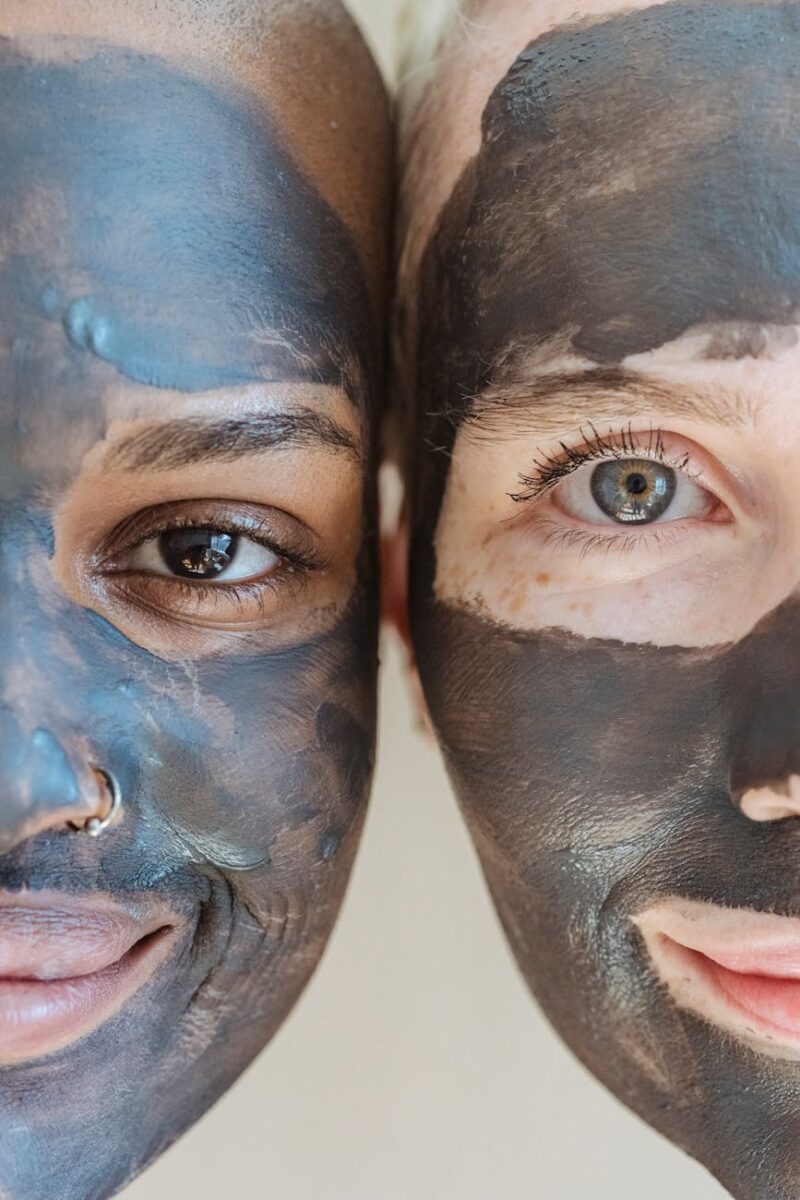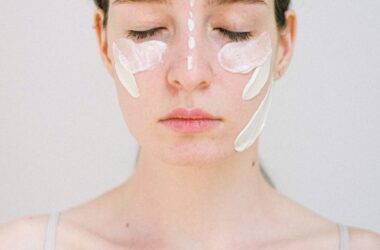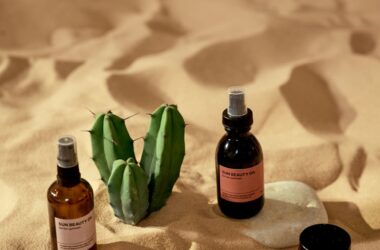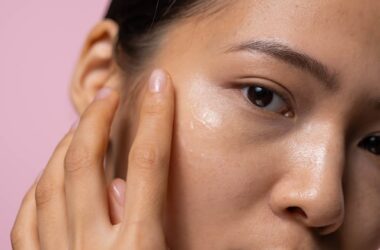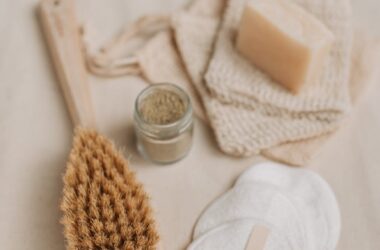ome of you may have heard that natural ingredients are better for your skin.
But is it true? I’ve spent the last few weeks researching and compiling my results.
For those who are interesting in natural ingredients, this article can help you decide whether or not to use.
Are natural ingredients better for your skin?
Natural ingredients are great for your skin. They’re usually derived from plants or minerals and are found in nature. While many of them can be effective when applied topically, some are quite toxic.
You need to do some research to ensure that the natural ingredient you’re considering for your skin is safe to use.
If you’ve been struggling with a skin problem, you might have considered natural products to help alleviate your symptoms.
Natural skincare products are designed to treat acne and skin irritations, nourish the skin and promote overall health.
Do natural ingredients really work better than non-natural ones?
It depends on what you’re using them for. If you want to improve your complexion and slow down the aging process, then a natural approach might be the way to go.
But if you’re looking for an effective treatment for acne or eczema, natural ingredients won’t be enough to get rid of your condition.
What’s the difference between natural and non-natural ingredients?
Each ingredient that goes into a cosmetic product has its own story, but generally speaking, natural ingredients come from plants and animals, while non-natural ingredients are either derived from synthetic sources or extracted from nature.
What do natural ingredients mean in skincare?
According to the FDA, it is a natural ingredient that contains nothing artificial or synthetic (including all color additives regardless of source).
Are natural ingredients better than synthetic?
When it comes to skincare and body care, natural ingredients are usually preferred over synthetic ones. But the reality is that there is no superior ingredient, only superior formulas.
Natural and organic ingredients are often used in skincare and body care products for two reasons:
They’re better for you
Natural ingredients are not as harsh on your skin as synthetic ones.
They are also less likely to cause allergies or breakouts. For example, an acne treatment product with salicylic acid will likely cause more irritation than one with tea tree oil — a natural ingredient that has antibacterial properties.
They’re better for the environment
Organic ingredients are typically harvested in a way that’s friendlier to the earth.
Synthetic ingredients can pollute the environment if they aren’t disposed of properly or if they find their way into water sources.
What natural ingredients are bad for the skin?
An important part of your skincare routine should be avoiding any ingredients that can harm your skin.
Below are some natural ingredients to avoid and how they affect the skin.
1. Bergamot (Citrus bergamia)
The essential oil from this citrus fruit is used in aromatherapy, soaps, and perfumes.
In large doses, it may cause photosensitivity and skin irritations, especially if it’s not diluted properly.
2. Fennel seed oil (Foeniculum vulgare)
This oil can be found in many skin care products because of its antioxidant properties.
However, the fennel seed oil is not suitable for all skin types because it can cause allergic reactions and inflammation of the skin.
3. Nutmeg
You may have heard that nutmeg is a great way to get a glowing complexion because it can reduce inflammation.
However, this spice can also cause severe burns and redness to the skin if used in high concentrations in anti-aging products.
If you want to try nutmeg as a home remedy for reducing puffiness and dark circles under your eyes, remember:
Less is more! Just sprinkle a tiny amount of ground nutmeg on a wet cotton ball and gently dab it on your eyelids before bedtime.
4. Salicylic acid
This is a beta-hydroxy acid (BHA) that can help clear pores and prevent breakouts.
Problem is, it’s very irritating and drying, which is why it should never be used around the eye area.
If you’re going to use it on the rest of your face, use only a little and supplement with plenty of moisturizers or you’ll end up with dry and flaky patches.
5. Triclosan
This ingredient is found in antibacterial soaps and can penetrate your skin enough to accumulate in your lymphatic tissue.
It also disrupts hormones and may be carcinogenic. Triclosan has been phased out in Canada and banned by the FDA, but it’s still widely used in other countries.
6. Tretinoin
This ingredient is better known by its brand name, Retin-A, and is a vitamin A derivative that helps to exfoliate the skin while preventing oils from building up in clogged pores.
Retinol also reduces fine lines and wrinkles. While it’s very effective, it also comes with some side effects like swelling, redness, dryness, stinging, irritation, and peeling.
Natural ingredients that can have a positive effect on the skin
There are many natural ingredients that can have a positive effect on the skin.
Some of them can even reduce the appearance of wrinkles, acne, and other common skin conditions.
Below are some of the top natural ingredients for healthy, radiant skin:
1. Aloe Vera
This plant has been used for years to help with many different skin issues.
It contains vitamin C, E, amino acids, and over 200 other nutrients. Aloe helps with wound healing and aids in collagen production.
2. Chamomile
It has many uses including helping relieve skin irritations and soothe dry skin.
It also helps repair damaged tissue and reduces inflammation.
3. Green Tea
This herbal tea has been used for centuries to treat various illnesses including acne and psoriasis because it contains powerful antioxidants that fight free radicals which cause premature aging and wrinkles.
4. Honey
Honey is full of nutrients and antioxidants that can effectively heal the skin from the inside out as well as keep your complexion clear from blemishes.
It also helps reduce scarring from acne or other rashes or irritations after they have healed from the inside out.
5. Shea Butter
This is an emollient fat obtained from the nut of the African shea tree, which has been used in Africa for thousands of years to protect skin from harsh environmental conditions.
6. Glycerin
Glycerine has long been used as a moisturizer to soften chapped lips and hands.
Applied to the skin, it can increase hydration by attracting moisture from the surrounding air into your skin cells.
7. Cocoa butter
Cocoa butter not only provides a great skin moisturizer but also helps heal scars and stretch marks.
This is important because people spend thousands of dollars on treatments for scars and stretch marks, but they often forget about the importance of prevention!
If you want to get rid of your stretch marks now, cocoa butter may be just what you need.
8. Tumeric
Turmeric is a powerful anti-inflammatory and antioxidant, making it one of the most beneficial ingredients to add to your skincare regime.
In fact, studies have shown that it is as powerful as certain prescription anti-inflammatory drugs, but without the side effects.
9. Taurine
Taurine is an amino acid that helps to keep your skin hydrated by drawing water into the upper layers.
It also helps to moisturize dry skin by making it less prone to flaking.
Taurine can be found in seaweed and fish but is often included in skin care products made from plants.
10. Vitamin C
Not only does vitamin C help to boost collagen production, which keeps your skin looking firm and youthful, but it also reduces the appearance of wrinkles.
The most effective form of vitamin C for preventing wrinkles is called L-ascorbic acid, which is also found in kiwi fruit and papaya.
11. Olive oil
Olive oil is well known for its ability to reduce inflammation and remove redness from your skin.
When you apply it on a regular basis, you can get rid of any scars or blemishes on your face and neck.
It also helps in keeping your skin moisturized, which makes it look healthy at all times.
12. Tea tree oil
Tea tree oil is a strong ingredient that is commonly used as an antiseptic agent.
It can kill bacteria while preventing acne breakouts on your face and arms.
When applied regularly, it can clear up your face completely and make it look young again!
Final Thoughts
While natural ingredients may be better for your skin, it is still unlikely that they will be able to replace synthetic ingredients in the beauty world.
However, a combination of natural and synthetic ingredients features in many new beauty products, and even some classic beauty favorites have been reformulated to include more natural ingredients.



